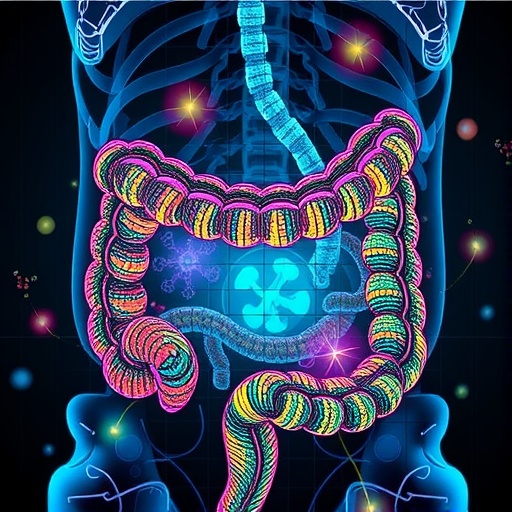The intricate relationship between gut microbiota and human health has recently gained significant attention in the scientific community. Emerging evidence suggests that the composition and functionality of the gut microbiome are closely linked to the aging process, with dysbiosis—an imbalance in the microbial community—showing a potential role in contributing to age-associated diseases. A recent narrative review titled “From Dysbiosis to Longevity” delves into this fascinating intersection of microbiology, aging, and health, highlighting findings from various studies and presenting a compelling case for the microbiome’s influence on longevity.
To fully understand the implications of dysbiosis on aging, we must first grasp what the gut microbiome is. The human gut is home to trillions of microorganisms, including bacteria, viruses, fungi, and other microbes. These microbial communities play critical roles, ranging from aiding digestion to influencing the immune system and even affecting mood and cognition. The term “dysbiosis” refers to any disruption in the balance of these microorganisms, which can lead to various health issues, particularly in older adults whose immune systems and digestive systems may already be compromised.
Aging naturally brings about changes in microbiome composition. Research indicates that the diversity of gut bacteria often decreases with age, which may limit the microbiota’s ability to support health. There is substantial evidence linking a less diverse microbiome to conditions such as obesity, diabetes, cardiovascular disease, and neurodegenerative disorders commonly seen in elderly populations. This decline in diversity can create a vicious cycle where inflammation increases, leading to further microbiome imbalances and contributing to age-associated illnesses.
One particularly concerning aspect is the pro-inflammatory state often observed in older adults, a phenomenon known as “inflammaging.” Chronic low-grade inflammation is tied to many age-related diseases, and the gut microbiome is perceived as a significant gateway for systemic inflammation. Dysbiosis can amplify this inflammatory response, causing a cascade of negative health outcomes. This underscores the importance of understanding how we might manipulate gut microbiota composition to mitigate the effects of aging and promote healthier aging.
Studies suggest that the consumption of prebiotics and probiotics could help restore balance in the gut microbiome. Prebiotics are substances that induce the growth of beneficial microorganisms in the gut, while probiotics are live bacteria that confer health benefits when taken in adequate amounts. Such dietary interventions have been shown to improve gut health, boost immune function, and even enhance mental well-being in older adults. Therefore, promoting a microbiome-friendly diet could be a significant step toward healthier aging.
Notably, the diversity and composition of gut microbiota have been observed to play a role in cognitive decline as well. Gut-brain axis research is rapidly evolving, and emerging data suggest that the microbiome can influence neurological health through various pathways, including inflammation and metabolites affecting neural function. Dysbiosis may contribute to cognitive impairments commonly associated with aging, such as memory loss and reduced cognitive flexibility, which are hallmarks of conditions like Alzheimer’s disease.
Furthermore, metabolic changes induced by dysbiosis are significant contributors to aging. As the gut microbiota shifts, it can directly affect how nutrients are absorbed and metabolized by the body. Recent studies have reported that a balanced microbiome can improve metabolic health and combat conditions such as insulin resistance, which often leads to diabetes. Interventions aiming to restore balance to the gut microbiome have the potential to lower the risk of metabolic diseases, significantly impacting the longevity and health status of older adults.
Another critical factor in the conversation about the gut microbiome and aging is its role in the immune system. The gut is a crucial component of the immune system, containing a significant portion of the body’s immune cells. Dysbiosis can lead to an impaired immune response, which increases susceptibility to infections and chronic diseases. An understanding of how to maintain a balanced microbiome may result in better strategies for enhancing immunity in older adults, thereby promoting longevity.
While promising, the research in this area is still ongoing. Each individual’s microbiome is unique, influenced by factors such as genetics, diet, lifestyle, and environmental exposures. As such, personalized approaches that consider these variances may yield the most effective interventions for promoting gut health and, consequently, healthy aging.
The narrative review titled “From Dysbiosis to Longevity” compiled by Tseng and Wu emphasizes the significance of extensive research to understand the precise mechanisms linking gut microbiota with aging and longevity. Their work establishes a critical foundation for future investigations aimed at developing targeted therapies that capitalize on microbiome modulation to improve health outcomes in the older population.
In closing, the relationship between the gut microbiome and aging presents a captivating new frontier across biomedical research. As we increasingly uncover the nuances of microbial balance and its profound effects on human health, we may find ourselves armed with the tools needed to combat age-related decline. This evolving field not only offers hope for extending lifespan but also for enhancing the quality of life as we age.
In conclusion, it is becoming increasingly clear that the gut microbiome is not merely an accessory to human health, but an integral component that can profoundly influence longevity. With ongoing research and evolving knowledge, the promise of utilizing microbiome science for better aging and health outcomes is an exciting prospect that challenges traditional notions of aging, suggesting that with the right approach, we might one day redefine what it means to grow old.
Subject of Research: The impact of gut microbiome on aging and longevity.
Article Title: From dysbiosis to longevity: a narrative review into the gut microbiome’s impact on aging.
Article References:
Tseng, CH., Wu, CY. From dysbiosis to longevity: a narrative review into the gut microbiome’s impact on aging.
J Biomed Sci 32, 93 (2025). https://doi.org/10.1186/s12929-025-01179-x
Image Credits: AI Generated
DOI:
Keywords: Gut microbiome, dysbiosis, aging, longevity, probiotics, prebiotics, immune function, metabolic health, cognitive decline.




